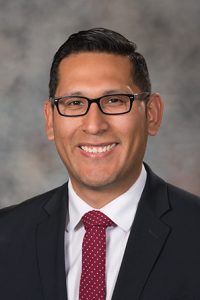Limits proposed for restrictive housing use
The Judiciary Committee heard testimony Feb. 12 on two bills that would impose restrictions on inmate confinement.

LB1208, sponsored by Omaha Sen. Tony Vargas, would prohibit the state Department of Correctional Services from placing an inmate in restrictive housing for more than 15 consecutive days.
After the 15 days, an inmate who is a member of a vulnerable population would be classified to general population status. Vulnerable populations include inmates who are younger than 18, pregnant or diagnosed with a serious mental illness, developmental disability or traumatic brain injury.
Vargas said the department’s excessive use of restrictive housing is directly related to the correctional system’s overcrowding problem.
“The Legislature passed [legislation] in 2015 that fortunately led to some reform of the use of restrictive housing,” he said. “However, the frequency of inmates placed in restrictive housing is still troublingly high.”
LB1208 would prohibit “double bunking,” or placing two inmates in the same cell in restrictive housing. The department could not place an inmate in restrictive housing for more than 90 days in a calendar year unless a specialized inmate classification committee determines it to be appropriate.
Before the department could exceed the 90-day limit, the committee must find that less restrictive housing is unsuitable because of a continuing and serious security threat.
LB1208 also would require that four out-of-cell hours be provided to inmates retained in restrictive housing between 15 and 180 consecutive days and six out-of-cell hours for inmates confined for more than 180 days.
All inmates in restrictive housing would receive mental health treatment as prescribed and all necessary clinical programming recommended by the state Board of Parole. Finally, the bill would prohibit the release of inmates held in restrictive housing into the community without transitioning back to general population for at least 120 days first.
Speaking in support of the bill was Danielle Conrad, representing the ACLU of Nebraska. She called the use of restrictive housing in Nebraska a “human rights crisis.”
“Solitary confinement reform is not a political issue and it should not be a political issue,” Conrad said. “Without meaningful reform, the status quo hurts us all.”
Timothy Lopez also supported the bill. As a formerly incarcerated person, he said that the use of restrictive housing only exacerbated trauma he experienced when his mother left him as a child.
“It doesn’t take months in [segregation] to lose your mind, but seconds and minutes,” Lopez said. “When you’re placed in restrictive housing, it’s a feeling of abandonment all over again.”
Opposing the bill was NDCS Director Scott Frakes. LB1208 was designed with no input from the department, he said, and would create “completely unreasonable” expectations.
“We’ll continue to raise the bar when it comes to reducing [the use of] restrictive housing,” Frakes said. “What will not work is to subject the agency to legislation that creates policy language rather than expected outcomes.”
Michael Chipman, president of the Fraternal Order of Police for corrections officers, also spoke in opposition to the bill. He said it would create an unsafe working environment within the current correctional infrastructure.
“The only way to provide the 4 and 6 hours of out-of-cell time now would be to leave the doors to the galleries open,” Chipman said. “Staff at [Tecumseh State Correctional Institution] told me that this was attempted many years ago and that staff assaults skyrocketed.”
The committee also heard testimony on LB786, sponsored by Omaha Sen. Steve Lathrop. As introduced, it would require that all inmates housed within NDCS be screened for traumatic brain injury, developmental disability and severe mental illness upon initial admission to a facility.

Lathrop said there likely are far more people with traumatic brain injuries within the correctional system than have been diagnosed.
“Our suspicion is that there are a lot more than we believe and it is beneficial for this legislature in making policy that we ensure that the restriction on restrictive housing is implemented and carried out in a way that we’re not ignoring these folks and pretending like we don’t have a problem,” he said.
The bill also would require that all current inmates receive the screening. Any inmate who receives a “positive” result for mental illness, developmental disability or traumatic brain injury would be presumed to be a member of a vulnerable population.
Peggy Reisher, executive director of the Brain Injury Alliance of Nebraska, spoke in support of the bill. States that have implemented such screenings have found that 50 to 80 percent of their populations test positively, she said, compared to 5 to 25 percent of nonincarcerated individuals.
“[LB786] gives us an opportunity to both identify and measure if brain injury is indeed an issue in our state prison system,” Reisher said. “If the screening indicates that there are a number of individuals who have [traumatic brain injuries], then it’s important to the discussion we’re having about prison reform.”
Opposing the bill was Harbans Deol, medical director for NDCS. He said the bill would duplicate a process that currently is in place, requiring the department to hire more psychologists in a market where there is a shortage of qualified mental health professionals.
The committee took no immediate action on either bill.

